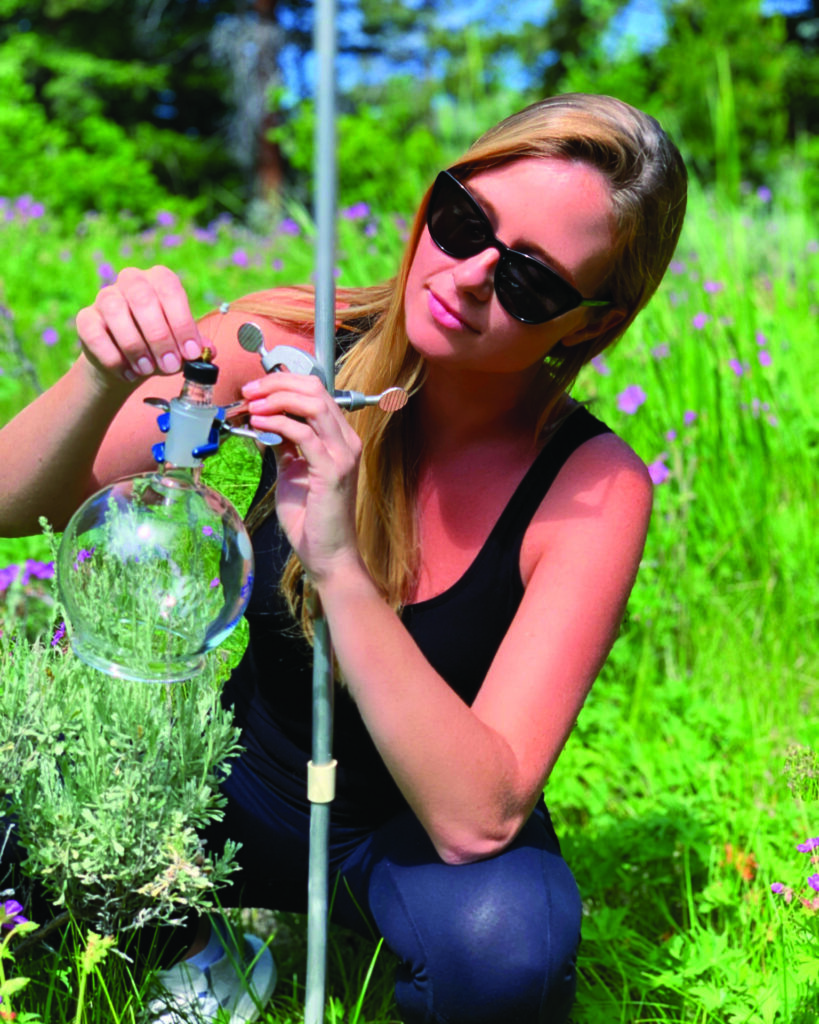 DEGREE: B.A. in international studies: African studies with a minor in French
DEGREE: B.A. in international studies: African studies with a minor in French
JOB TITLE: Fine-fragrance perfumer in New York and Paris
FAVORITE TRINITY MEMORY: Simply too many to count, but they would most definitely include the lifelong friends I made and the beautiful campus we enjoyed during those memorable, formative years.
What do you do as a perfumer? A perfumer is an artist who creates the fragrance for perfume, candles, and beauty products like shampoo. As a fine-fragrance perfumer, I mostly work in high-end perfume and occasionally luxury candles or beauty products. My job is to create the liquid inside the bottle, or, as it’s known in the industry, the “juice.” I work with fashion brands to translate their aesthetic into a beautiful scent by designing a fragrance formula, which is usually a mixture of 30–120 natural and synthetic ingredients measured in extremely precise quantities. The craft of perfumery is like a mix of art, architecture, chemistry, mixology, botany, and storytelling.
What path did you take to this position? My path to perfumery was not typical in that I didn’t study chemistry like most of my colleagues, which is the industry standard and status quo. Instead, I used my college years to study the anthropology of scent and how it shaped the cultures, religions, and language development of various African tribes. I loved the stories of ancient Egypt, of incense, the spice routes, and the idea that the passing of time could be marked and measured by the scents of the seasons. I was enamored by the scents I discovered in nature, food, and travel and the olfactive memories of past experiences. My love of culture, botany, and anthropology shaped that focus for me and continues to influence my creative process.
What do you enjoy most about your work? I love the process of creating in such an abstract field and that with each client I get to dive into a new universe as part of my research and development process. I also love nature and am fortunate to be able to spend time in the growing fields, studying plants and flowers and learning about the best ways to extract their fragrance for use in perfumery. Much like a good chef knows exactly where he sources his ingredients, I take pride in knowing the source of my raw materials and understanding the impact of the terroir on their molecular composition, similar to the expertise of a vintner in the craft of making wine. My career has taken me all over the world, from harvesting narcissus in the mountains of France, to visiting patchouli fields in Indonesia while I was living in Singapore, to studying the world’s best quality of frankincense coming from Oman. Being a perfumer is truly a magical job and a labor of love, which gives me so much appreciation for the beauty that surrounds us on this earth.
What are your biggest challenges? The fragrance industry is highly competitive and can be very political. I’ve had to fight hard to achieve success, both as a woman and as an American in a male- and French-dominated field. Even getting inside the world of perfume is extremely difficult, as it is notoriously secretive and opaque. It also can be a struggle to work with creative personalities and celebrities who may not be experts in fragrance but have strong ideas on what they want to execute. It’s also quite challenging to navigate the conversation about “natural” versus “synthetic” when the typical consumer is not properly educated on the science and rationale behind the use of such materials but is getting a lot of information from the media or on the internet, which may be incomplete or uninformed.
How did your time at Trinity prepare you for your career? Trinity nurtured my interests and allowed me to explore what fascinated me. A true liberal arts school, Trinity taught us how to think creatively and to be analytical and resourceful and encouraged us to be curious, lifelong learners. I studied abroad in Paris and Rome, where I created independent studies around fragrance. My professors were extremely supportive of my unusual and rather specific interest in perfume and allowed me to explore it while getting course credit. This really laid the foundation for me to enter the professional world of perfumery.
Did you have a professor who was particularly influential? I had so many wonderful professors at Trinity, but my adviser, Leslie Desmangles, stands out for his support of my senior thesis. He was so open-minded about my topic (“The Spiritual and Osmological Role of Scent in Disparate Religions and African Cultures”) and encouraged me while I pursued this esoteric and specific subject.
